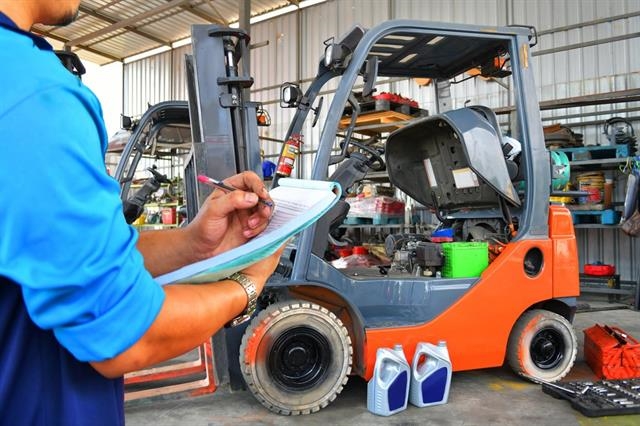 No consensus on mandatory refresher forklift training
No consensus on mandatory refresher forklift trainingWe recently ran a story on the introduction of mandatory refresher training for forklift operators every three years in Singapore and on our forums asked the question: Should refresher forklift training be mandatory globally and would it likely reduce workplace accidents?
The responses show there is certainly no consensus among our readers from those who believe no amount of training will help people who choose not to listen to instruction and follow rules, to those who believe workplace training and assessment is a much better pathway to safer workplaces.
Tat2dPete from the UK points out that while not mandatory, refresher training is often a requirement to work but annual training would prove hard to police.
“As an instructor I have to attend a refresher course for my instructor registration every five years which includes completing the operators test at the start of the course,” he continues.
“If it were mandatory, who is going to take the responsibility for ensuring companies are completing training? Because as often seems to be the case, training comes second to the need to get the job done.”
New Zealand’s Brian P says training as a “tick box exercise to satisfy arbitrary regulatory requirements, is a waste of both time and financial resources”.
“In NZ we have no legal requirement for an OSH certificate, but it is a normal industry practice,” Brian continues, adding the company he works for has moved to annual, internal on-the-job assessments of its forklift operators.
“The internal assessment looks at all aspects of the operator's performance, not just their operation of the MHE. Remedial training is targeted to specific individual training needs as opposed to the one-size-fits-all model of external training courses.
“We are in our second year of this program and it has successfully raised the general performance standards of the MHE operators in our freight stations and reduced MHE-related incidents almost to zero.”
John H from the US agreed with Brian saying there was much more value in “policing operator habits by supervision” than there would be in government-mandated refresher training.
“Training is not a once a year thing as employees come and go on a regular basis, as noticed in my 41 year tenure in the forklift industry,” John continues. “Plus forklift operations will vary from company to company and in many, from forklift to forklift.
“One size never fits all.”
Phil R from Canada believes refresher training should be mandated “every two to four years or when near-misses and damage to product or equipment becomes apparent” while MTnbike1 from the US believes “no matter how much you train people on operating material handling equipment they don't listen and follow their teachings”.
Shropshire-based training and accreditation body RTITB (Road Transport Industry Training Board), responding to our LinkedIn post says the question should be not whether it should be mandatory, but whether businesses can afford to take the risk of not offering or requiring forklift operator refresher training.
“Whether it is obligatory or otherwise, are you prepared to deal with the effects of an incident (or worse)?,” RTITB asks, adding that the HSE Approved Code of Practice advises forklift refresher training take place every three to five years.
“From our perspective, operator refresher training is highly recommended on a three-yearly basis as best practice. Additionally, it must be completed every three years to continue the operator's registration on RTITB's National Operator Registration Scheme (NORS).
“Refresher training should always be about safety first, rather than just compliance.”
Kevin S from the UK firmly believes mandatory refresher training should not be mandated.
“As an instructor and a health and safety manager, NO,” he states. “If you are taught properly you don't forget. What's usually missing is the follow-on, job-specific training and the critical adequate supervision. People operate unsafely because they are allowed to”.
There is still time to have your say by visiting our forums.